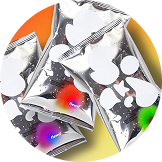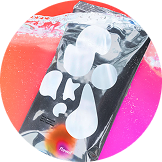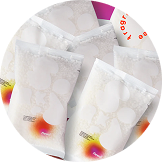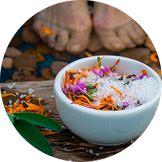A good night’s sleep is the foundation for a productive day. Whether you’re headed to work or getting ready for school, hitting the gym or taking care of the kids, you can’t do anything to your full potential when you’re running on E.
Unfortunately, that good night’s sleep seems to get more and more elusive. Some of us have a hard time falling asleep. Others find it difficult to stay asleep. An unlucky number of us struggle with both.
The good news is Mother Nature has provided plenty of solutions to help you put insomnia in the past, including CBD and magnesium for sleep. But is one better than the other, or should you combine them for the best of both worlds?
We’ll compare and contrast CBD vs magnesium for sleep below to help you get a sense of how each works and which might be the better choice for overcoming your sleeplessness.
The short answer, though, is that magnesium is more effective than CBD when it comes to sleep. In fact, you could make the case that CBD isn’t even the optimal cannabinoid for sleep - THC and CBN are more beneficial!
That being said, we invite you to try our Insomnia Ending bath soak, a powerful combination of magnesium chloride, vitamins A & E, and natural L-carnitine. Just a few uses of this magnesium bath soak a week are all it takes to kick insomnia to the curb once and for all!
Learn more about CBD and magnesium for sleep below.
How Does Magnesium Support Sleep?
Magnesium plays a foundational role in over 300 bodily processes. It should come as no surprise it’s linked to sleep. It supports the parasympathetic nervous system (PNS), which is responsible for calming the body and slowing things down at night.
One of its main functions is GABA (gamma-aminobutyric acid) regulation. This neurotransmitter reduces brain activity and promotes a feeling of calm. In this sense, it can be difficult to wind down both physically and mentally when your body is deficient in magnesium.
Here’s the kicker - almost everyone is deficient in magnesium. This vital mineral isn’t available in many foods, and most oral supplements have really low bioavailability. So even if you think you’re getting enough magnesium, you probably aren’t.
Magnesium also helps lower cortisol levels, ease muscle tightness, and support melatonin production, all things that support a stable sleep-wake cycle. These effects are even more relevant if your sleep challenges can be traced back to stress, restlessness, or physical tension.
Just be clear, magnesium isn’t going to “knock you out.” Rather, it helps your body return to the state it’s naturally meant to be in before sleep. It’s a long-term play for easing sleeplessness.
It’s also worth mentioning the form of magnesium matters, too. We get asked all the time, what type of magnesium is best for sleep? Magnesium chloride is widely considered the gold standard for its high bioavailability, meaning your body can use it really efficiently.
That is, when it’s absorbed transdermally (through the skin). This is the approach we prefer because it also bypasses the digestive system so you get a better night’s rest without the bloating or loose stools associated with oral magnesium supplements.
We encourage you to learn more about best magnesium for stress and sleeplessness here in our blog. In the meantime, let’s address the other half of our comparison of CBD vs magnesium for sleep.
How Does CBD Support Sleep?
CBD (cannabidiol) is the widely known non-intoxicating compound derived from hemp or marijuana. It doesn’t get you high. That’s THC. It won’t cause you to fail a drug test, either - again, that’s THC.
CBD is federally legal thanks to the passing of the 2018 Farm Bill, which means anyone can tap into its therapeutic potential - so how does CBD support sleep? It works with the body’s endocannabinoid system (ECS), a network of receptors that regulate mood, stress, inflammation, and - you guessed it - sleep.
Rather than making you sleepy directly, CBD may help reduce the obstacles that stand in the way of restful sleep: anxiety, pain, and overstimulation. It modulates CB1 and CB2 receptors to help quiet a racing mind, reduce physical discomfort, and promote an overall sense of ease.
You can see why it’s a compelling connection for those who have trouble falling asleep due to mental tension or chronic discomfort. But, CBD’s results are entirely dependent on individual sensitivity, dose, and product quality. Timing and consistency play an important role as well.
Tolerance can build over time, and not everyone responds to it in the same way. That makes it harder to predict outcomes, especially for long-term use. Nevertheless, CBD can be a helpful sleep aid when anxiety is the culprit for insomnia.
But you could say the same for magnesium - after all, we have an anxiety bath soak formulation just for this exact purpose! So, which is the right choice between CBD vs magnesium for sleep?
CBD vs Magnesium for Sleep: Which is More Effective?
Just as we said in our comparison of magnesium vs melatonin for sleep, you could make the case for using either magnesium or CBD for sleep.
Each has the potential to ease your body and mind into a relaxed state conducive to falling asleep and staying asleep. But they’re fairly different in terms of how they go about it.
We’ll compare and contrast CBD vs magnesium for sleep based on mechanism of action, onset, safety, and more below to leave you with a clear understanding of which best suits your needs.
Calming the Brain vs Supporting Body Function
CBD works by influencing the ECS to modulate mood, anxiety, and discomfort. It can help quiet mental noise, so it’s pretty useful when overthinking or restlessness is keeping you up at night, even though you’re mentally and physically exhausted.
That said, CBD doesn’t directly support the body’s sleep mechanisms. It just gets whatever is interfering out of the way. This is what makes magnesium for sleep so powerful. It supports core systems involved in sleep regulation.
As we touched on earlier, magnesium promotes GABA activity, lowers cortisol, eases muscle tension, and helps the body shift into a parasympathetic state. It doesn’t just calm the mind - it pushes the body into a deep, restful state conducive to a better night’s sleep.
Onset and Duration
We get asked all the time, how long does it take for magnesium to work for sleep? After all, you’re sick and tired of waking up groggy and under-recovered. You want fast results. You’ll ge them with magnesium!
This mineral starts working its magic almost immediately, with a wave of relaxation washing over you within 30-60 minutes of using our magnesium bath soak. The timeline for oral supplements is another story entirely, and we don’t really recommend those.
It’s important to note, though, the real benefits from magnesium come from consistency. You might feel it makes a difference from the first night on, but just wait till you see what happens a few weeks later with regular use!
On the other hand, CBD’s effects depend on the delivery method and dosage. Oils and tinctures can take 30-90 minutes to kick in, while vapes hit within minutes.
The actual results will vary from one person to the next, though. Some feel relaxed quickly, others report no effect. Tolerance plays a role here as well. You might find yourself needing a higher and higher dosage to address sleep challenges over time.
Effectiveness Across Different Sleep Challenges
At the end of the day, choosing between CBD vs magnesium for sleep can be simplified by narrowing it down to the reason you’re having trouble sleeping.
CBD can help when high anxiety, chronic pain, or racing thoughts are keeping you up at night. These symptoms are notorious for getting in the way of deep, restorative sleep.
In contrast, magnesium is more effective for broad, systemic sleep support: chronic stress, muscle tightness, difficulty staying asleep, or poor sleep quality. Anyone struggling with sleep issues stemming from physical or nervous system overactivity will find it extra effective, though.
Safety, Side Effects, and Long-Term Use
It’s important to look at not just the potential benefits, but the possible downsides between CBD and magnesium for sleep as well. The good news is you won’t have much to worry about either way - both are fairly well-tolerated.
Magnesium, particularly transdermal magnesium chloride, is non-habit-forming and doesn’t produce any sort of side effects. While oral magnesium is associated with digestive discomfort, this isn’t an issue with bath soaks or other topical solutions.
CBD is pretty safe in its own right. However, there is a risk of tolerance and, subsequently, reduced effectiveness. Some people say they have more vivid dreams, dry mouth, or mild grogginess, but these aren’t common outcomes.
Should You Combine CBD and Magnesium for Sleep?
The bottom line in comparing CBD vs magnesium for sleep is this: CBD can be helpful when sleep is disrupted by short-term mental tension or discomfort. But, magnesium is the more stable, sustainable choice for body-wide support that addresses stress, nervous system balance, and sleep quality at the root.
That said, should you combine CBD and magnesium for sleep to enjoy the best of both worlds? You certainly could! They place nicely together and could both be part of a more comprehensive sleep improvement plan.
Timing and dosage matter if you plan on combining them, though. Use magnesium (topically) as part of your wind-down routine about an hour before bed. Start with a low CBD dose 30-45 minutes before sleep. This can be a powerful one-two punch against insomnia.
But, most people find combining CBD and magnesium for sleep isn’t necessary. Magnesium on its own is usually more than enough to get back to sleeping well. The key, though, is finding the right magnesium solution for sleep. Your search ends here at Flewd Stresscare!
Put Insomnia in the Past for Good With the Help of Flewd Stresscare
Flwed Stresscare helps your body find its way back to rest with our highly-touted Insomnia Ending bath soak. It’s formulated for those who struggle to fall asleep, stay asleep, or wake up feeling rested.
We use magnesium chloride, the most bioavailable epsom salt alternative, coupled with vitamins A and E to help regulate sleep-wake cycles, and L-carnitine to support energy metabolism so your body can truly recharge overnight.
The scent is subtle and grounding: a crisp blend of yuzu, grapefruit, and soft floral notes that help cue your body to slow down. No overpowering perfumes - just a clean, calming sensory experience that lulls you into a tranquil state all on its own.
Plus, the act of soaking in a warm bath and taking some time to yourself is the perfect addition to your bedtime routine. Simply pour the full contents into a tub of warm water and soak for at least 15 minutes, though you can chill for up to 30 minutes for the full effects.
There’s no need to rinse afterward unless you’d like to. Use it as part of your evening routine, up to three times per week, to support a deeper and more sustainable kind of rest.
Like all the stress relief bath soak formulations we’ve created, it’s free from synthetic dyes, parabens, or artificial fragrance. It’s vegan and cruelty-free, too, so you can feel good about spoiling yourself. Just see what others had to say!
“The insomnia soak is my fave. I sleep so hard after this bath, I'm actually shocked. I can sleep through the night and wake up knowing I slept hard. Like slobber on my pillow, wake up with insane bed head, saying "what happened" when I wake up type sleep.”
“Amazing! The scent is so relaxing and helps me sleep so well. I can’t believe something so simple is so profound in my life.”
“Relaxing in a warm bath is an extravagance I haven’t had time for in years. The sleep one got me to sleep earlier than I’ve been able to for a while. The scents are not overpowering and the extra supplements are a bonus.”
Closing Thoughts on CBD and Magnesium for Sleep
CBD and magnesium for sleep each have their place, but if we could only recommend one, it’d be an easy choice. Magnesium chloride, especially when taken transdermally, supports the body’s sleep systems directly. It helps the nervous system and lower stress-related tension.
As we wrap up our overview of CBD vs magnesium for sleep, we want to reiterate that CBD may help in some cases when pain or anxiety is a barrier, but it’s less predictable and not always necessary. Most people find our magnesium soak is all they need to put insomnia in the past for good.
But why take our word for it when you could experience a better night’s rest yourself? Give your sleep routine something it can actually build on at Flewd Stresscare today.
























































